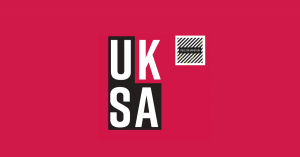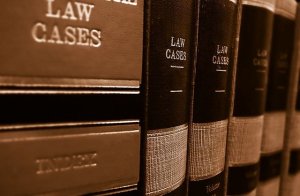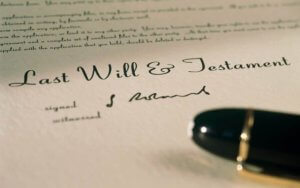- UK trusts, tax and estate planning
- Wills & Succession Planning

Longer Reads
Coronavirus – Can you create a Will while self-isolating?
With the practical limitations posed by social distancing, the preparation and execution of Wills requires creative solutions. This is particularly the case when it comes to witnessing documents, as the law requires the physical presence of a witness and so it cannot be done on a video call.
2 minute read
Published 23 March 2020
Key information
- Specialisms
- Private Wealth
We have suggested six steps for how you can still think about your wills and estate planning in the current climate.
(1) Use the time to think about your affairs
The present circumstances may actually provide you with more time to reflect on your current estate planning. Indeed, with more people working from home, or perhaps not working at all, maybe this is the time to sit down (virtually) with your family to discuss such matters. Matters to be considered might include:
- Who do you want to manage your estate after your death (known as your “executors”)?
- If you have minor children, who should act as their guardian if you and their other parent have both died?
- Do you want to place any protection over your assets after your death, for example using one or more trusts?
- Is there in fact any estate planning that you might do now during your lifetime rather than waiting for your death? With the values of many assets depressed by the current market uncertainty, it may actually be prudent to gift assets while their open market values are relatively low.
In addition, consider drawing up an asset schedule, as this will help your solicitor ensure that they have a comprehensive understanding of your affairs.
(2) Instruct a solicitor
Once you are ready to proceed, instructions can be given by email, over the telephone or using video-conferencing software. In this respect technology can actually make the process much more streamlined.
(3) Circulate the Will for execution
We can prepare the documents remotely and discuss them with you using the same technology over which the original instructions were given. Once all parties are happy with the documents, they can be posted or emailed for signing.
In normal circumstances a solicitor will formally bind a Will before circulating it for execution. This is because of the high threshold that the Probate Registry places on the presentation of the Will for probate after the testator’s death. However, it is better for an individual to have a Will in some form, rather than risk not having a Will at all. Therefore, you should feel more comfortable printing a Will at home.
(4) Execute a Will while self-isolating
If the latest official guidance permits individuals to be in the same room as each other, then an individual can still witness a Will. The key is that the witnesses are physically present and see the testator sign the Will. The witnesses could be on the far side of the room or even behind a barrier, provided this rule is not breached. The testator could then pass or slide the Will to the witnesses to sign.
If it is not possible to be in the same room at all, a Will could be signed by the testator near their window, with both witnesses watching from the other side of the glass. Once the testator has signed, the Will could be pushed through the letterbox for the witnesses to sign and then return.
(5) Practice good hygiene while executing
Consider asking each individual to sign with a different pen in order to prevent transmitting the virus. If there is only one pen, consider wearing gloves or wiping down the pen with a handwipe or antibacterial gel between uses.
If one of the witnesses is showing symptoms of coronavirus then, as far as is possible, have this individual stand apart from everyone else and ask them to be the final signatory so that they do not need to pass the pen or the Will back to anyone else.
(6) Store the Will safely once it has been executed
We strongly recommend that the Will should be scanned, if possible, and then the original Will should be stored in a safe location without bending or creasing it. It would also be prudent to email us as copy of the Will for our own records.
When the coronavirus risk has passed we would recommend that you then send us the original Will for safekeeping in our secure facility. We would also be happy to send you another Will for execution which will have been formally bound.
Related content
Longer Reads
Coronavirus – Can you create a Will while self-isolating?
With the practical limitations posed by social distancing, the preparation and execution of Wills requires creative solutions. This is particularly the case when it comes to witnessing documents, as the law requires the physical presence of a witness and so it cannot be done on a video call.
Published 23 March 2020
Associated sectors / services
Authors
We have suggested six steps for how you can still think about your wills and estate planning in the current climate.
(1) Use the time to think about your affairs
The present circumstances may actually provide you with more time to reflect on your current estate planning. Indeed, with more people working from home, or perhaps not working at all, maybe this is the time to sit down (virtually) with your family to discuss such matters. Matters to be considered might include:
- Who do you want to manage your estate after your death (known as your “executors”)?
- If you have minor children, who should act as their guardian if you and their other parent have both died?
- Do you want to place any protection over your assets after your death, for example using one or more trusts?
- Is there in fact any estate planning that you might do now during your lifetime rather than waiting for your death? With the values of many assets depressed by the current market uncertainty, it may actually be prudent to gift assets while their open market values are relatively low.
In addition, consider drawing up an asset schedule, as this will help your solicitor ensure that they have a comprehensive understanding of your affairs.
(2) Instruct a solicitor
Once you are ready to proceed, instructions can be given by email, over the telephone or using video-conferencing software. In this respect technology can actually make the process much more streamlined.
(3) Circulate the Will for execution
We can prepare the documents remotely and discuss them with you using the same technology over which the original instructions were given. Once all parties are happy with the documents, they can be posted or emailed for signing.
In normal circumstances a solicitor will formally bind a Will before circulating it for execution. This is because of the high threshold that the Probate Registry places on the presentation of the Will for probate after the testator’s death. However, it is better for an individual to have a Will in some form, rather than risk not having a Will at all. Therefore, you should feel more comfortable printing a Will at home.
(4) Execute a Will while self-isolating
If the latest official guidance permits individuals to be in the same room as each other, then an individual can still witness a Will. The key is that the witnesses are physically present and see the testator sign the Will. The witnesses could be on the far side of the room or even behind a barrier, provided this rule is not breached. The testator could then pass or slide the Will to the witnesses to sign.
If it is not possible to be in the same room at all, a Will could be signed by the testator near their window, with both witnesses watching from the other side of the glass. Once the testator has signed, the Will could be pushed through the letterbox for the witnesses to sign and then return.
(5) Practice good hygiene while executing
Consider asking each individual to sign with a different pen in order to prevent transmitting the virus. If there is only one pen, consider wearing gloves or wiping down the pen with a handwipe or antibacterial gel between uses.
If one of the witnesses is showing symptoms of coronavirus then, as far as is possible, have this individual stand apart from everyone else and ask them to be the final signatory so that they do not need to pass the pen or the Will back to anyone else.
(6) Store the Will safely once it has been executed
We strongly recommend that the Will should be scanned, if possible, and then the original Will should be stored in a safe location without bending or creasing it. It would also be prudent to email us as copy of the Will for our own records.
When the coronavirus risk has passed we would recommend that you then send us the original Will for safekeeping in our secure facility. We would also be happy to send you another Will for execution which will have been formally bound.
Associated sectors / services
- UK trusts, tax and estate planning
- Wills & Succession Planning
Authors
Need some more information? Make an enquiry below.
Subscribe
Please add your details and your areas of interest below
Article contributors
Aidan
GrantPartner
Specialising in International trusts, tax & estate planning, Private wealth, UK trusts, tax & estate planning and US/UK Tax & estate planningPeter
DanielPartner - Head of Private Wealth
Specialising in UK trusts, tax & estate planning, International trusts, tax & estate planning, Private wealth, Probate and US/UK Tax & estate planning
Enjoy reading our articles? why not subscribe to notifications so you’ll never miss one?
Subscribe to our articlesMessage us on WhatsApp (calling not available)
Please note that Collyer Bristow provides this service during office hours for general information and enquiries only and that no legal or other professional advice will be provided over the WhatsApp platform. Please also note that if you choose to use this platform your personal data is likely to be processed outside the UK and EEA, including in the US. Appropriate legal or other professional opinion should be taken before taking or omitting to take any action in respect of any specific problem. Collyer Bristow LLP accepts no liability for any loss or damage which may arise from reliance on information provided. All information will be deleted immediately upon completion of a conversation.
Close






































































